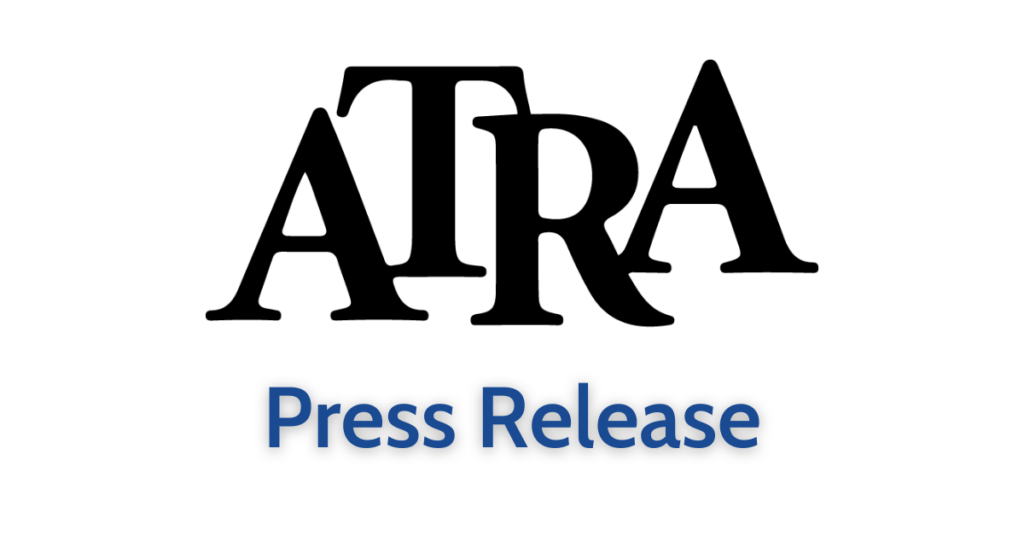
House Oversight Hearing on Third-Party Litigation Financing Applauded by ATRA
The lack of oversight and transparency around third-party litigation funding threatens the integrity of our legal system
The American Tort Reform Association (ATRA) applauds the House Committee on Oversight and Reform for taking a significant step in addressing lawsuit financing during its hearing today, “Unsuitable Litigation: Oversight of Third-Party Litigation Funding,” scheduled to begin at 10 a.m.
“We commend the House Committee on Oversight and Reform for taking the initiative to highlight the impact of third-party litigation financing on our civil justice system today,” ATRA President Tiger Joyce said. “Litigation financing has become a significant driving force behind mass tort litigation, and the lack of oversight and transparency around funding threatens the integrity of our legal system.”
Mass tort litigation has evolved into a multi-billion-dollar enterprise for plaintiffs’ lawyers, who frequently target manufacturers across various industries. Third-party litigation financing (TPLF) is one driver of the mass tort machine that has rapidly grown in recent years, posing unique implications for the fairness and efficiency of our civil justice system.
The role that third-party investors play in financing litigation is of particular concern given the potential to compromise lawyers’ independence when funders can influence litigation or settlement decisions. Undisclosed litigation financing arrangements can complicate the resolution of disputes and obscure conflicts of interest or unethical conduct.
TPLF not only funds litigation but can create it as well. Financing can cover upfront costs for advertising and other services to maximize the number of claims, flooding courts and overwhelming defendants. Courts, litigants, and the public are often unaware of these hidden financial arrangements, further challenging the fairness of the legal process.
As this practice has emerged, ATRA has advocated for transparency in TPLF agreements. Disclosure of such arrangements at the outset of litigation or upon entering a funding agreement would provide parties and courts with vital information to assess the influence of funders on the litigation.
“We appreciate the Committee’s willingness to address third-party litigation financing,” Joyce said. “We hope this spotlight will spur action to ensure transparency in third-party litigation financing agreements, thus safeguarding the fairness of our civil justice system.”
ATRA submitted a letter of testimony to the Committee citing further concerns and problems that have come from third-party litigation financing and also has published a detailed report outlining these concerns, “The Hidden Money Behind the Litigation: The Problematic Expansion of Third Party Litigation Funding.”
Latest News
View all news
America’s Top 9 Worst Judicial Hellholes®
Left unchecked, these jurisdictions will continue dragging down economic growth and undermining justice through rampant lawsuit abuse.
ATRA Commends J&J’s Plan to Resolve Notorious Talc Lawsuits
Claimants Given Opportunity to Vote on Plan; Judge to Reconsider Scientific Validity of Plaintiffs’ Experts
The Lab Whose Junk Science Is Fueling a Frenzy of Litigation
Legitimate consumer protection demands sound science and impartial analysis — not distorted data designed to manufacture lawsuits.
Lawsuit Advertising Frenzy Fuels Georgia’s Litigation Epidemic
Law Firms Spent $168M+ on 2.2M Ads in Georgia
Trial Lawyers’ Dual Grip on Pennsylvania Politics and Public Opinion Revealed in New ATRA Reports
ATRA’s Latest Studies Reveal Financial Influence and Lack of Transparency in Pennsylvania’s Campaign Finance Systems
Reports Reveal Influence of Trial Lawyers on New Jersey’s Legal Landscape
Two New Reports Analyze Legal Services Advertising Trends and Campaign Contributions



